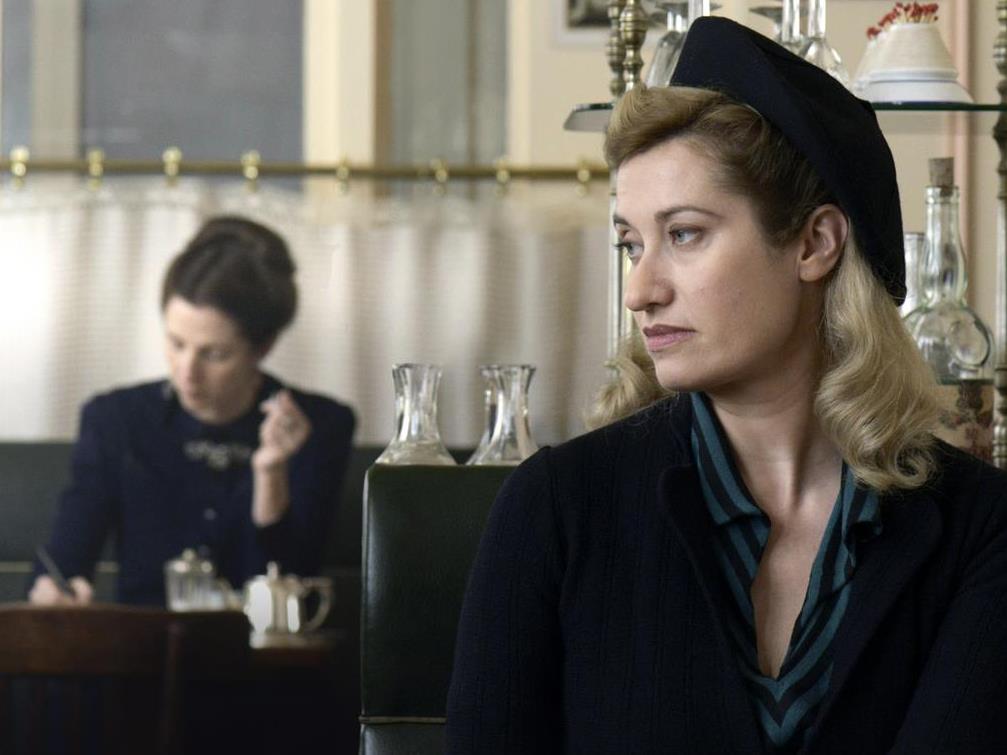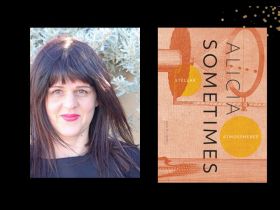Biopics straddle the delicate balance between relating the facts of the subject’s life, and crafting a portrait of their inspiration, not just as a figure of significance, but as a person. As he did with French painter Séraphine Louis in 2008’s Seraphine, writer/director Martin Provost competently combines information and essence as he turns his gaze to another influential artist: novelist Violette Leduc, author of In the Prison of Her Skin, Ravages and The Bastard. His film chronicles the key developments in her personal and professional dealings as it simultaneously fleshes out the minutiae of her character.
Across six involving chapters, each named for those that forged their own imprint upon the titular author, Violette skips through vignettes spanning the end of the Second World War to the thick of her writing career. Leduc’s (Emmanuelle Devos, The Other Son) wellspring of literary desire flows from a mismatched relationship with writer Maurice Sachs (Olivier Py, Sunny Spells), the pair playing at a fake marriage to neither’s benefit. The true flash of motivation comes when Leduc discovers Simone de Beauvoir (Sandrine Kiberlain, Tip Top), devouring her works, penning her own autobiographical efforts in the same image, and seeking encouragement from the woman that becomes her mentor.
Provost, his Seraphine co-scribe Marc Abdelnour, and their first-time collaborator, René de Ceccatty, ground their representation of Leduc in her struggle for acceptance and significance; as others cycle through her orbit, including playwright Jean Genet (Jacques Bonnaffé, Coming Home), entrepreneur and collector, Jacques Guérin (Olivier Gourmet, Tenderness), and her mother, Berthe (Catherine Hiegel, Granny’s Funeral), Leduc’s deflated self-worth remains a constant. Success and attention buoys her uncertainty, but only fleetingly. Even the slightest trace of disappointment, whether sparked by the lack of her books on store shelves, or romantic rebuffs, sees her confidence wilt and wither.
Central to Leduc’s story – particularly to the relaying of her continual feelings of rejection, perhaps the most decisive aspect of her persona – is the bond with de Beauvoir, one of aspiration, idealisation and infatuation by the former, and tempered involvement by the latter. Central to Violette are the fine-tuned performances that convey the crucial friendship, Devos and Kiberlain excellent throughout as they navigate a raft of awkward topics and situations. At at their best when bristling against each other, the actresses are erratic and restrained in turn, their differences providing an apt complement. Displaying the complexities and contrasts of Leduc from her ever-present insecurity to her inexhaustible strength, their portrayals plumb the depths of fragility and scale the heights of melodrama.
Befitting the feature’s period, setting and the expressive world it attempts to inhabit, Violette is a vision of sumptuousness, heightened by the skills of cinematographer, Yves Cape (Holy Motors). Darkness also emanates, the film a study in textured bleakness as rendered with the unflinching glare of naturalism. Indeed, that is the feature and its subject in a nutshell: lyrical in expanse but raw in intricacy. A sense of Leduc is truly evoked, beyond data and biography, as Provost and Devos give her form and feeling beyond her erudite legacy.
Rating: 3 ½ stars out of 5
Violette
Director: Martin ProvostFrance, 2013, 139 mins
Perth Festival
www.perthfestival.com.au
3 – 9 March
Film season runs through til 13 April
Alliance Francaise French Film Festival
www.affrenchfilmfestival.org
Sydney: 4 – 23 March
Melbourne: 5 – 23 March
Canberra: 6 – 25 March
Brisbane: 6 – 25 March
Perth: 18 March – 6 April
Adelaide: 20 March – 8 April
Byron Bay: 24 – 28 April





